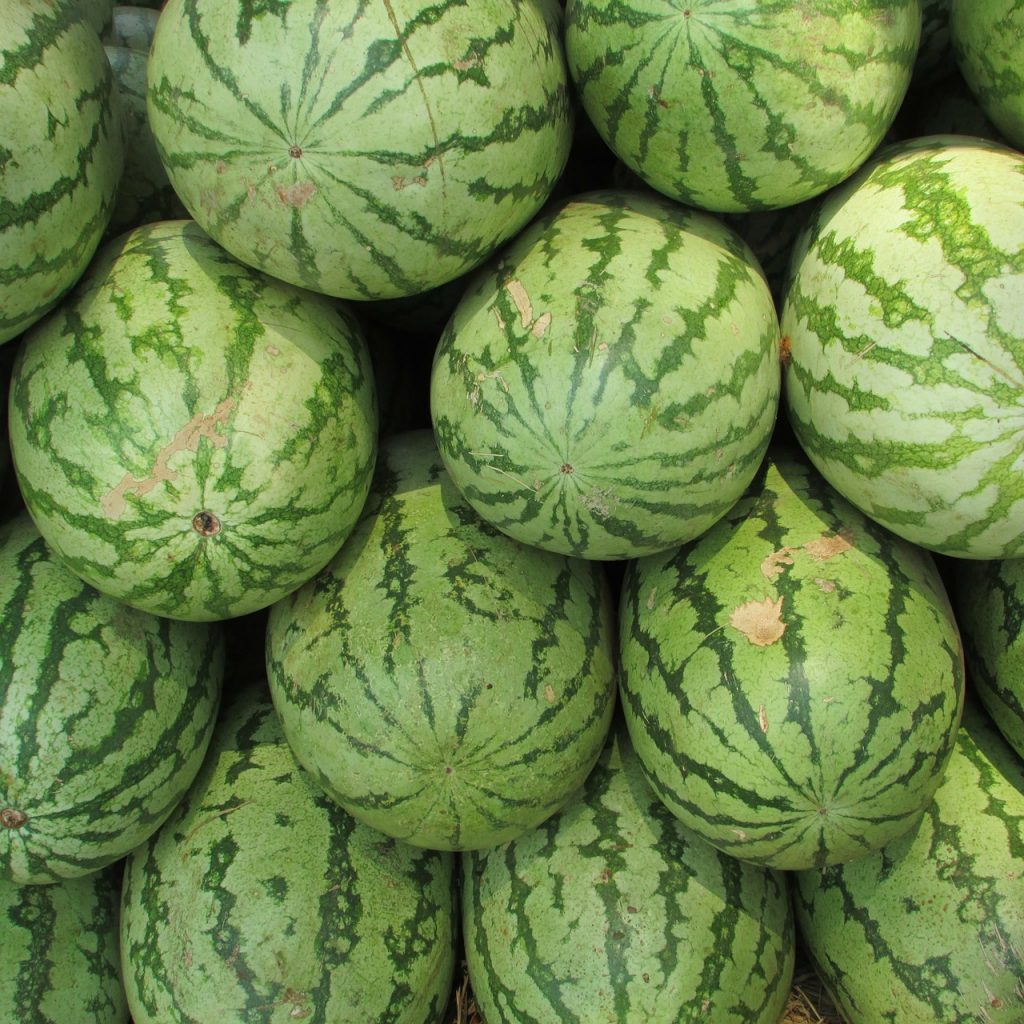Novel watermelon rootstock proves resistant to disease and pests

A new watermelon line, developed by Agricultural Research Service (ARS) and Clemson University scientists, is serving as a solution against major disease and pests of watermelon crops in the southern U.S., says the USDA.
The innovative variety is a rootstock watermelon called Carolina Strongback. It is resistant to both Fusarium wilt and the southern root-knot nematode, according to William "Pat" Wechter, plant pathologist with the ARS U.S. Vegetable Research Laboratory (USVL) in Charleston, South Carolina.
Fusarium wilt, a soilborne disease that threatens vegetable crops, can stay in the soil for 30 years or longer. What's more, fumigants used to control it are no longer available, he adds.
In addition, watermelon is extremely susceptible to nematodes, which are especially brutal on crops in the nation's southeast.
Yet, to combat these threats, susceptible watermelons can be grafted onto resistant rootstocks of other vegetables such as squash and pumpkin. This helps to control certain pathogens, Wechter comments.
Some other kinds of watermelons grafted to squash rootstock have shown to be resistant to Fusarium wilt, but they were susceptible to southern root-knot nematode.
In contrast, when tested in highly infested soils with fusarium and nematodes, Carolina Strongback performed well.
Moreover, it maintained a high production level of harvested fruit, according to Wechter.
The development process
To create this watermelon line, Wechter worked with two wild citron watermelon (Citrullus amarus) lines that possessed resistance to Fusarium wilt and nematodes.
Working with USVL geneticist Amnon Levi, Wechter crossed the two category lines.
Afterward, he made selections for numerous generations to produce the best plants, notes the USDA.
Following that step, Wechter partnered with Clemson University horticulture scientist Richard Hassell, an expert at grafting rootstock, to test the plants.
Together, they continued to make more selections to produce the final resistant line - the Carolina Strongback.
Selected for its grafting qualities and seed production, Carolina Strongback material can be used by a number of companies in the industry.
The USDA emphasizes that it could be beneficial to seed companies, vegetable grafting companies and watermelon growers.
The association says it can serve as a rootstock for growing susceptible watermelon cultivars in soils infested by the watermelon Fusarium wilt pathogen and root-knot nematodes.
As for now, the Agricultural Research Service has filed a Plant Variety Protection (PVP) on this technology and is working with a commercial company on a licensing agreement.















































